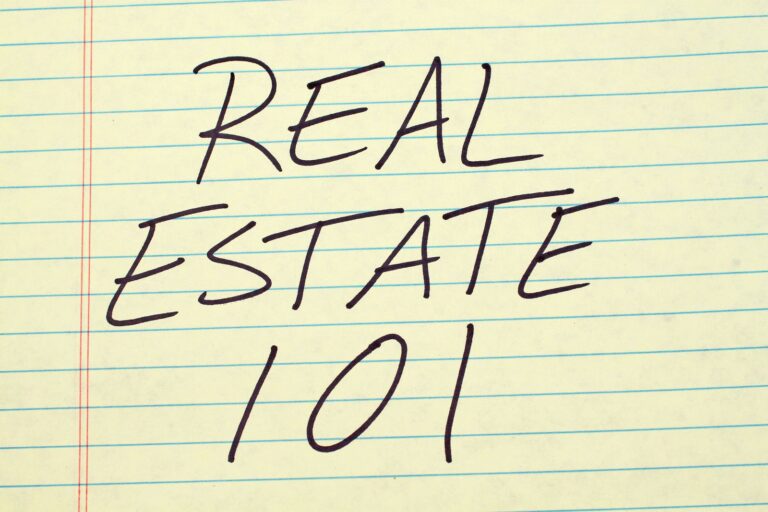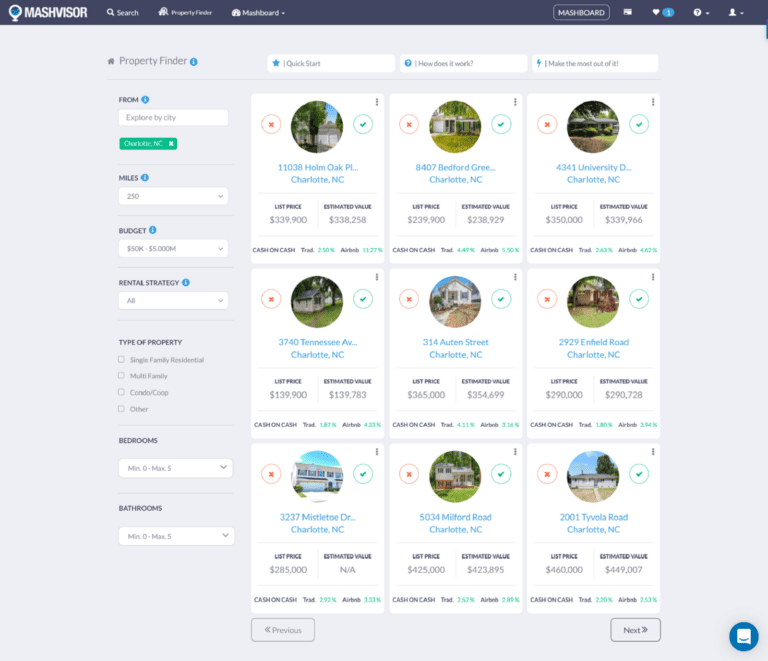Building a real estate empire remains to be one of the most effective ways to build wealth.
By owning homes that you rent out, you can enhance your investment returns and have a steady cash flow. But before you start visualizing having six digits (or more) in your bank account, you first need to do the work. In this article, you will learn the steps to building a real estate empire of your own. Read on to find out what you need to do, why you need to take each step, and how you can do them right.
Step #1: Get a Real Estate Education

The first step of any big project is often the hardest, and many aspiring real estate investors tend to skip this. But those who opt out of learning about real estate are never heard from again except in segments that talk about investment failures.
While this blog post tells you how to build a rental empire, you will need to do further reading to better understand the industry. Every time you read an article about real estate, you might encounter terms that you are not familiar with (“What is a buyer’s/seller’s market?”). You might also have questions about certain situations (“How did they determine the value of that property?”).
You can feel more comfortable with making informed decisions and avoid getting ripped off by learning about the industry. Websites like Udemy feature hundreds of online courses about real estate for beginners who want to learn the basics. Experienced investors can also find courses about what is new and trending in the industry.
You could also enroll in real estate schools even if you are not planning to become a licensed real estate agent. Knowing what the professionals know will help you succeed in building a real estate empire.
Related: The Most Effective Ways to Get a Real Estate Education
Step #2: Pick a Strategy
As you learn about the industry and how to build a real estate empire, you will encounter investment strategies. Picking the right strategy depends on your budget, experience, and time. Here are some of them:
- Long-term buy and hold. Perfect for first-time investors. You buy a property and rent it out for a long period of time. This will help you learn and earn while minimizing risks.
- Short-term buy and hold. This works well if you buy a run-down property. You can then make repairs, rent it out, then sell it for a higher price after a year or up to five years.
- House wholesaling. With this strategy, you find a run-down house, put it under contract with the seller, and then find an interested buyer to purchase the property at a higher price.
- Flipping. You buy a run-down property, make major repairs, then sell it at a higher price. This is better suited for investors who have more funds.
- BRRR. Stands for Buy, Rehab, Rent, and Refinance. This strategy is similar to flipping, but instead of selling the home, you rent it out and get more funds through refinancing.
Traditional vs. Short-Term Rental Strategies
Aside from deciding whether to keep the property for a long time or sell it in five years, you must also decide what type of rental you will implement.
Short-term rentals like Airbnbs work for homes that are in tourist spots (for vacationers) or downtown (for businessmen). While these can generate a higher rental income, the risk can also be greater as there might be certain times when there are no tourists or businessmen coming to town.
Meanwhile, traditional or long-term rentals generate lower income but offer stable cash flow since your tenants will be living there for at least a year. No matter what you choose, you can eventually do both strategies as you are building a real estate empire and buying more properties.
Related: 5 Strategies for 2020
Step #3: Find Your First Property
Now that you know more about the real estate market and have decided on what strategy to go for, it is time to purchase your first property. The most convenient way to search for a rental property on the market is by using an online tool like Mashvisor’s Property Finder.
Using Mashvisor’s Property Finder, you can filter your search by selecting the property type and optimal rental strategy. The results include not only the listing price. Each listing also features a rental property calculator that computes the rental income, occupancy rate, capitalization rate, and cash-on-cash return. These data will be valuable for your rental market analysis.
You can also search for properties in up to five cities at once so you can find the home with the biggest income potential without resetting your search several times. And if you use this tool often, the Property Finder AI can help you find more suitable properties based on your own search history and other patterns.
When building a real estate empire, you might also want to find off market properties. These homes are not listed on any MLS (multiple listing services) so you could buy them below their market value while avoiding competition from other investors. Mashvisor’s Property Marketplace can help you search for an off-market property. Its database contains properties that are both on and off the market, as well as homes that have been foreclosed, have tenants, and more.
Step #4: Hire a Property Manager
As you continue building a real estate empire of your own, managing your rental homes can become more and more difficult. If your goal is to own several rental properties, then you need to hire a property manager to help you. Their responsibilities include the following:
- Supervising and coordinating maintenance and work orders
- Doing basic repairs and cleaning work
- Resolving tenants’ concerns and complaints
- Marketing your property
- Showing vacant units to prospective tenants and leasing them out
- Collecting rent and depositing them to your account
- Communicating with you on a regular basis regarding the status of your property
Because they act as the proxy landlord, be ready to pay your property manager around 8 to 10% of your rental income. Even though your overall returns may get smaller, hiring help could give you more time and the opportunity to buy more properties or enjoy your elevated lifestyle.
If you are just starting an empire, finding a competent property manager can be a challenge in and of itself. The best way to find someone is through referrals. So reach out to your network and tell them that you are in need of a great property manager. The more properties you own, the more likely you will attract better talent.
Related: The Responsibilities of a Property Manager
Step #5: Scale Your Operation
By the time you reach this step, not only are you in the process of building a real estate empire. More importantly, you are seeing money coming into your account.
If seeing the numbers you earned from your first rental property excites you, imagine how much more you can generate if you buy another home to rent out?
To do this, you need to get more funds. You can achieve this depending on your chosen strategy:
- If you are doing long-term buy and hold, you can set aside a percentage of your rental income to purchase your next property.
- For short-term buy and hold, use the funds from your rental income and when you sell the house at a higher price.
- If you choose to do wholesaling or flipping, save half of the net profit to pay yourself, then use the remaining funds to buy either a higher-end property or multiple properties.
- For BRRR, you will get more funds when you refinance your rental home, which you can use to purchase new properties and keep your rental income for yourself.
Conclusion
Building a real estate empire requires a lot of work from the start. You need to:
- Learn about the industry and how to build a rental property empire by enrolling in an online course or a real estate school;
- Pick a strategy that will help you get started depending on your goals and current resources (budget, experience, or time);
- Search for and purchase the best-performing rental property that is within your budget using tools like Mashvisor Property Finder and Mashvisor Property Marketplace;
- Hire a property manager to help you maintain your rental home; and,
- Scale your operation by acquiring more capital, pivoting to a new strategy if necessary, buying higher-end or multiple properties, and building your team.
But as you buy more rental homes—especially if you manage to purchase a multiplex—you will have an easier time scaling more and earning more.
Lastly, here is a bonus tip: Aside from funds and the real estate know-how, you must also have the patience, the salesmanship, and the right mindset to thrive in this venture. Rome was not built in one day, and neither will your empire. But once you get there, you will find that all of the hard work you did was worth it.
Learn more about our product.
